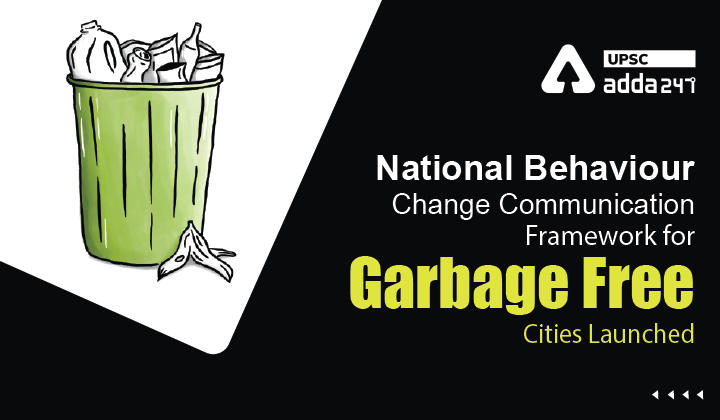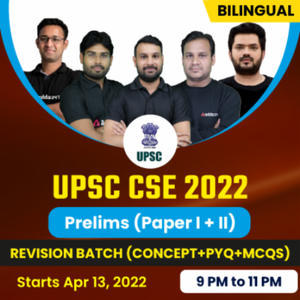Table of Contents
Swachh Bharat Mission Urban 2: Relevance
- GS 2: Development processes and the development industry —the role of NGOs, SHGs, various groups and associations, donors, charities, institutional and other stakeholders.
Garbage free cities: Context
- Recently, Ministry of Housing & Urban Affairs has launched the ‘National Behaviour Change Communication (BCC) Framework for Garbage Free Cities’ to strengthen the ongoing jan andolan for ‘Garbage Free Cities’.
Behaviour Change Communication Framework : Key points
- National Behaviour Change Communication Framework for Garbage Free Cities has been launched under the aegis of Swachh Bharat Mission-Urban 2.0.
- It shall serve as a guiding document and blueprint for States and Cities to undertake large scale multimedia campaigns along with intensive and focused inter-personal communication campaigns.
- The framework focuses on intensifying messaging around the key focus areas of source segregation, collection, transportation, and processing of waste, plastic waste management, and remediation of legacy dumpsites to truly transform the urban landscape of India.
- At the core of the Mission lies the central belief that ‘swachhata is everyone’s business’.
- Besides the BCC Framework for Garbage Free Cities, second edition of SwachhTalks titled ‘Swachhata Ki Jyot’ was held that aimed to share field experiences and best communications’ practices of sector partners, cities, and States in making an impact in the field of Swachhata.
- SwachhTalks is the peer-learning webinar series for States/Union Territories and Urban Local Bodies.
- BCC is key to the success of SBM U 2.0. It requires localization, community engagement, citizen participation and collaborative partnerships to bring about desired outcomes.
Swachh Bharat Mission Urban 2.0: Importance of community participation
- After seven years of the mission implementation, it has been found that any city that has engaged with its citizens directly and extensively has been successful in achieving its Swachhata objectives.
- Moreover, it has been realised that IEC (Information, Education and Communication) Campaigns are most successful where local bodies have done adequate work alongside IEC activities.
- Swachhata Didis are the pillars of the Swachh Bharat Mission in Chhattisgarh. They ensure that every neighbourhood is clean every day. Their efforts have resulted in the State winning the Swachhata Ka Taaj as Cleanest State, three years in a row.
Read current affairs for UPSC





 TSPSC Group 1 Question Paper 2024, Downl...
TSPSC Group 1 Question Paper 2024, Downl...
 TSPSC Group 1 Answer key 2024 Out, Downl...
TSPSC Group 1 Answer key 2024 Out, Downl...
 UPSC Prelims 2024 Question Paper, Downlo...
UPSC Prelims 2024 Question Paper, Downlo...
